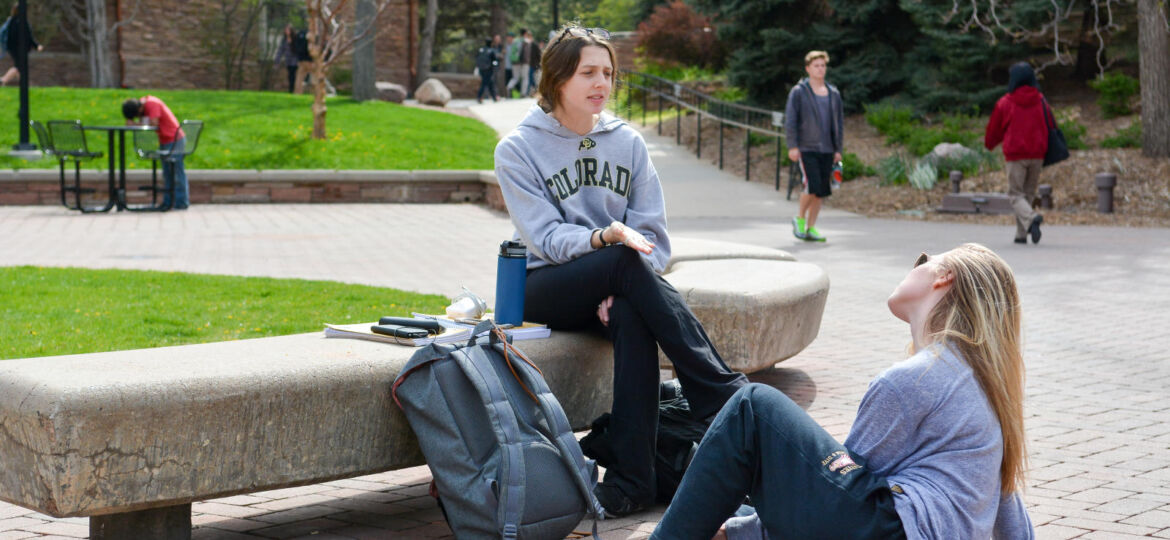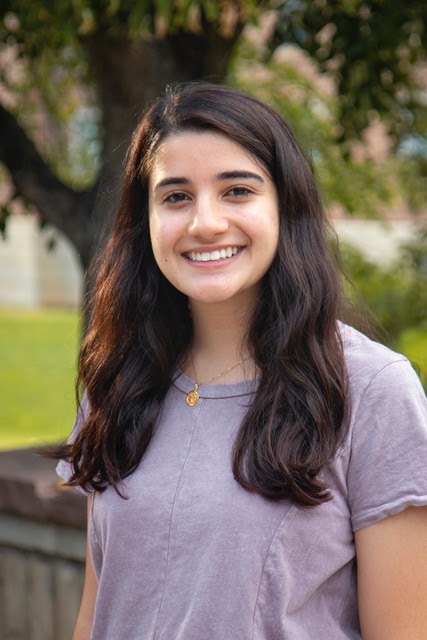
Peer Wellness Coach: Nadyah Spahn
Meet Nadyah Spahn, a CU undergraduate student, who has made it her goal to help peers better understand their mental health.
By Nicholas Kohler
Nadyah Spahn, an unassuming brunette, smiles into the camera as she stares at the computer screen as she prepares for yet another Zoom. Confident in her training, the interview begins as so many have before: “Tell me about yourself.” Except, I deliver those words.
Spahn is a peer wellness coach at the University of Colorado, Boulder. Founded in 2018, peer wellness coaches were created to aid students who struggle with mental health issues. Since these coaches are students themselves, they can listen and direct students to the proper resources without the power disparity that one might find when talking to a professor or resident advisor.
The coronavirus and the subsequent quarantine period has challenged many students to face mental health problems. According to a study published by the CDC, mental health issues have increased dramatically during the quarantine period. For students looking for an outlet during these times, peer wellness coaches are crucial. And for all of August through mid-October, Spahn would be the person virtually sitting across from you.
The shift to online learning, she believes, has blurred the boundaries that students are used to having in their daily schedules. “I would say for students, probably the biggest wellness tips I have for right now with online classes are to make sure that you have a routine set up. So you know exactly when you’ll be working on which class, when you’ll be taking breaks, when you can have fun, when you go outside,” she advised. “Then you can maintain some sense of order in your life. And it doesn’t just seem all chaotic….”
What is Peer Wellness at CU?
Peer wellness coaches are trained to deal with mental health topics like stress, anxiety and depression as well as managing relationships, adjusting to college life and trying to create a more refined schedule. According to Keith Bennett, the wellness outreach program manager, the training is nationally certified, “All of our coaches get a certification through NASPA CPE, which is a certified peer educator, a nationally recognized certification where our coaches can take with them after even they’re done coaching with us.”
One of these techniques is motivational interviewing. Bennett describes it as using open-ended questions, affirmations, reflections and big statements. The goal of this technique is to let the other person know you are listening while still allowing him or her the space to make his or her own decision.
According to Spahn, generally, freshmen are the students who reach out asking for help; this year, however, that has changed.
“It seems like I’m meeting with more upperclassmen now who are having problems with online learning or coping with COVID or living with people,” said Spahn.
Most meetings take about 30-60 minutes, but Spahn assured me that she would talk for as long as the student needed. The meetings can be a recurring time or can be a one time occurrence.
“I would say that most students meet with me once and then they have the resources and they have the knowledge that they need to achieve their goal,” said Spahn. “Some students do like to have more check-ins just for their own personal accountability so that I can ask them, ‘Did you do your next steps?’”
Learn more about Nadyah Spahn

At CU, Spahn is an international affairs major with a minor in leadership studies from the president’s leadership course. She is currently writing her thesis and conducting research on the cultural idioms of distress in Iraqi refugees. This research can feel personal for Spahn, whose mother is a Ugandan refugee who fled in the 1970’s. Her mother remains her inspiration for working with refugees in the future.
Spahn is Muslim, which she says has shaped her experience here at CU. Spahn acknowledges that the change to online classes has actually eased the burden on her as a minority, saying, “I could go into a room and scan it and see maybe one hijab in a sea of white faces and know that I would be underrepresented in the class. And if someone were to make comments about Islam, I would be the one that would have to defend it. But now, since classes are online and it’s easier to not know who’s in your classes, you don’t have to see all of them physically.”
Bennett has noticed Spahn’s impact on the program as a whole, “She’s the most experienced coach we have right now. She’s been with us since the beginning of the program,” said Bennett. “I know from our conversations over the years that coaching is definitely going to prepare her for the future she wants to have.”
For those interested in setting up a meeting with a peer wellness coach, you can email PeerWellnessCoaching@colorado.edu directly or you can visit their website to learn more.

